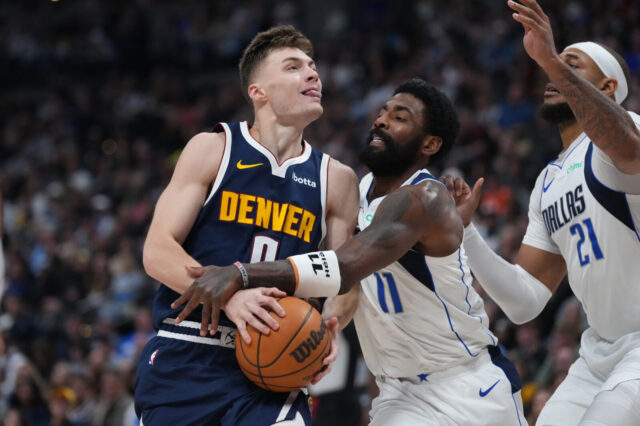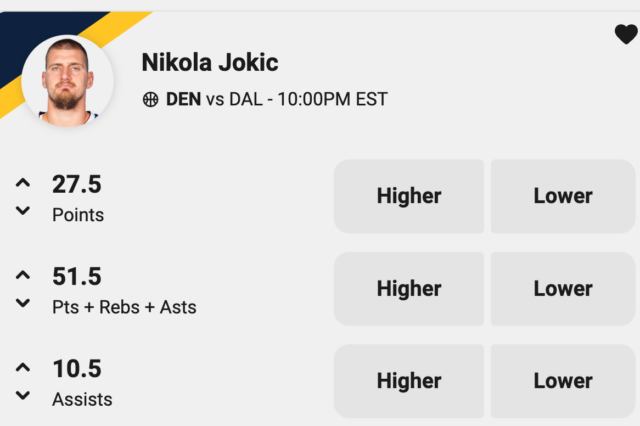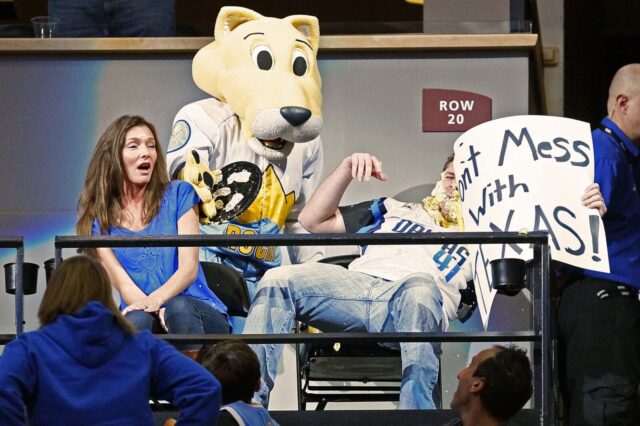Denver Nuggets head coach Michael Malone just wrapped up his first year with the team in April, guiding Denver to a better record than most national pundits projected for the squad, and doing so with an oft-injured team, including missing some key contributors all along the way. After a summer filled with preparation for the 2016-2017 season, Denver Stiffs was able to catch the coach during some rare down time and chat about all things Nuggets. Today we share part two of a three-part series from that conversation… here’s part one… and here’s part three…
********************
Denver Stiffs: Your dad, Brendan, has been involved with the game since before you were born, and the growth of his coaching career mirrors your life's growth in an interesting way. Cut me some slack if this seems a silly corollary, but…
Your dad’s first big coaching job, as a high school head coach, came just before you were born. He moved to college as an assistant, right as you started grade school. He becomes a collegiate head coach right as you become a teen, and then he moves to the pros with the Knicks right as you start driving, at 16. Then he moves to the Pistons and climbs the assistant ladder there right as you hit adulthood. Finally, as you start to coach, you go from your first coaching gig at Oakland to Providence, as you make the decision to really chase this coaching career. That decision just happens to coincide with the same year your father takes on his first pro head coaching gig with the Raptors. How did watching your dad progress this way impact you, since it started before your earliest memories?
Michael Malone: Well, obviously you've done your research, which is great. But one thing I don't think I've ever mentioned in an interview, and it's about my age by the time I was actually driving. I didn't get my license until I was 25 years old. I grew up as one of six kids and being from New York, Queens, and Long Island, I didn't really need a car, and so I wasn't going to get a car. So literally, when I was in college, I either went home by car with a friend and spent a lot of time walking, and for ID, I used my passport. But I never had a license until I was 25. A little known fact (laughs).
As to your question, I'd not heard that one before. You know I think what it was – and maybe this was more me not even realizing it after time – maybe it was beneath the surface but, with my father, I grew up in a gym. My earliest memories are when he was a coach at Power Memorial Academy, which is now closed, and was a famous high school in Manhattan. He won a couple city championships there, and used to run a camp up in Maine.
I grew up in a gym, I grew up with a ball. As one of six children – for whatever reason, I can't tell you why – me and my father were very close from an early age. I can remember people always telling me, "you're just like your father". I heard that especially from my grandmother, his mother. My father and I had the same interests, the same personality, just a lot of things. We share a common passion with the game of basketball. I remember, from a young age, I was like his shadow. If he was in a gym, I was in a gym.
When he moved into college at Syracuse University with Jim Boeheim, if my father was recruiting in the city, I was along with him in the gym. I remember seeing Kenny Smith, Mark Jackson, Pearl Washington, all these amazing players, by going to all of his games. I loved it, and it was all I knew, being in the gym and being with my father. I almost compare it to me being an apprentice, and just watching him work every day. Watching his work ethic, commitment, sacrifice, and his time away from my mother. I mean, my mother raised six kids. Not that my father was an absent father, but he worked hard. He had six mouths to feed, so he worked, he sacrificed, and he had a passion for the game. He’s still working in the NBA, having been in the league over 30 years now, and it’s all he knows, it’s a part of him.
This content is no longer available.
One of the best things he's passed along to me is that the best coaches aren't just coaches. The best coaches are teachers. I've really taken that to heart. Anybody can coach, and tell a guy what to do, but can they explain the "why". Can they tell a player why they're doing what you're asking of them. I've taken a lot of things from my father over many years. He's a source of constant advice. I lean on him, and we talk.
It's true even this last year, he worked in Detroit, but he watched as many of our games as possible and would offer advice. Sometimes unsolicited advice (laughs). It's because I know how proud he is of what I'm doing, how much he cares about me, and how we've had this special connection that's been undeniable for many years.
I feel fortunate to be a son of a coach and a son of a teacher because not only did he set a great example for me and show me the path, he even tried to talk me out of it, which I'm sure you came across in your research. He did it because he knew how tough and demanding this job is. But once he saw that I had this passion, and was willing to do whatever it took to get ahead and advance, then he said to me, "Listen, you're going to be a great coach, as I can tell you love it. But just don't get married, because it's really hard on your family."
So then I got married. And had kids. And he said, "I have no more advice for you, because you don't listen to anything I say." (laughs)
Our relationship really is special. I'm actually heading home soon to spend some time back in New York/New Jersey with my mother and father because I haven't been able to do that in quite a while. You know, as they get older that time becomes more and more important for me. It's even more important that I have my two daughters spend time with my parents, because I want them to have that connection. I've been blessed in that regard.
It's funny, because the person who never gets any credit, and probably deserves more, is my mother. Everybody sees that my father is a coach, and I'm a coach… but through all the insanity of what a crazy profession my father and I are in, the rock of the family has been my mother. She's kept the family together for the 50-plus years that they've been together. So I have to make sure and mention my mother, because without her this whole thing probably would have gone sideways a long time ago. She has kept it together, and she is really an incredible woman.
Stiffs: What a lovely way to give credit where it's due. You spoke a lot to how you and your dad's coaching styles are alike. How are they different?
Malone: You know, that's a great question. When I was in New York for four years with the Knicks, I had four different head coaches in that time, and there was a short period of time that my father and I got a chance to work together. Don Chaney was the head coach, and my father and I were assistants alongside Lon Kruger. That was really neat, because we had a chance to work together every day, see each other, talk to each other, and even challenge each other. Don Chaney would laugh and say that sometimes we'd disagree just for sake of disagreeing. That's where we find differences, but our differences are much more subtle.
My father is from a different time period. When he was a high school coach, he was one of those hard core, disciplined, and old school type coaches. I would say that even though I'm a young coach in the NBA, in terms of tenure for NBA head coaches, I'd say I also have a lot of old school about me. I value discipline. I know for it worked me when I played, and maybe it's because I grew up with it in the household, but I responded best to coaches that were hard on me, disciplined me, and didn't take the easy route. That was good for me, and at the end of the day, that's what I believe in, as obviously that's my approach.
Like I said, I always go back to DeMarcus Cousins because I get that example so much, and maybe it goes back to what Vince Lombardi said. Deep down inside, every player wants to be disciplined. Every player wants to be held accountable, they really do, and DeMarcus is no different. He gets labeled as crazy, or difficult, or whatever. I disagree. DeMarcus and I hit it off. Now there were days that I was in his face, and we would go at it. I would use some colorful language if I had to. Not for effect or just to do something, but because it needed to be done. After that, he knew that I would always go and circle back with him and let him know these things: this is why it happened, I love you, and I care about you. It is my job to bring out the best in you. If that means I have to do that to you, that’s what I have to do.
This content is no longer available.
So, I've definitely taken from my father's approach to coaching. Caring, but also having the courage to hold guys accountable. I think you don't see that approach often enough in the NBA.
As to other influences, Gregg Popovich has had a big impact on my career, which is really kind of interesting because I’ve never actually worked with him. We spent some time on a trip in Argentina, and when I got my job in Sacramento, he called me up and said, “Listen, just be yourself. You’re fiery, you get emotional, but as long as they know you care about them and you love them, you’ll have no problem.” I follow that pattern in part because that’s what he does.
As far as differences between me and my father, it really is subtle. We both see the game very similarly, we both value defense, we both value toughness, so I think there's more a lot of similarities in how we see the game. We're in constant conversation about basketball. This past postseason, when I watched their team in the first round of the playoffs, I'd call him up and offer my insights, and so there's always this great dialogue and conversation. Our differences come in the fact that we still don't always agree, and we shouldn't, just like any relationship. I don't want to always agree with anyone. Tim Connelly and I don't always agree, and we shouldn't. But we challenge each other to look at things differently, and learn from each other, and we're better off from it. That's the same thing with me and my father.
Stiffs: We talked about how you have to meld the pieces together on defense… You also have some interesting pieces to fit back together on offense with some healthy vets coming back into the fold after the youngsters worked out some kinks late last season when pressed into service. What are the upsides of having everyone back? What are the challenges that you still have to solve for?
Malone: Good question. Obviously, every NBA team wants to be healthy, and the healthier you are, the better a chance you have. For whatever reason, I believe we were fourth in games lost to injury last season. That's no one's fault, it's just happenstance, but it's unfortunate, obviously.
When Wilson Chandler went down in the preseason and was lost for the entire year, that was a big blow. That was a season-changing event, because Wilson probably would have checked off more boxes on our team than anybody else, in terms of his offense, defense, rebounding, toughness, and versatility. He brought so much to the table. We say around the office that getting back a healthy Wilson Chandler is like a free-agent signing. It didn’t happen last year, so it will happen this year. It’s a big deal to get Wilson back for as close to 82 games as possible… To get Gallo back for as close to 82 games as possible… Jusuf Nurkic, another important guy who missed quite a few games, back to as close to 82 games as possible. Now you’re playing at full strength.
"Full strength" really helps as last year we were forced to play so many different guys, so many different lineups, so many different groups together. When you are forced to do that, it's really hard to get a chemistry and just go with it. One guy is in, and then he's out. Another guy is in, and then he's out. How do you develop that chemistry and that synergy on the floor when you're always having to change the lineup and rotations? If we're healthier this year, that will help.
It's huge getting those veterans back. Gallo is coming off a career year, when he also sadly missed 30 games. But before he was hurt, he did a great job for us. He lived at the foul line, which is a really important part of what we're trying to do. And Wilson Chandler missing all 82… tough. As I covered, Wilson's a good player. Their presence gives us a lot of possibilities.
We have the ability next year to play really big with Jokic and Nurkic together in the frontcourt, or we can play really small with Gallo or Wilson Chandler at the four and playmaking guards all around them. The real challenge to what you asked about is this: there's only so many minutes, and there's only so many guys that you can play.
When you look at our roster right now, you look at each position. At the point guard position, you have three guys that are all capable of playing in Emmanuel Mudiay, Jamal Murray, and Jameer Nelson. At the two-guard position, you have Gary Harris, Will Barton, and Malik Beasley. At the three, you have Gallinari, Chandler, and Mike Miller. At the four you have Kenneth Faried, Darrell Arthur, and even Juancho Hernangomez, if we decide to keep him here. At the five you have Nikola Jokic, Jusuf Nurkic, and Joffrey Lauvergne. So, that’s 15 guys, and if you take out Malik and maybe Juancho, still 13 guys that are going to expect to play.
This content is no longer available.
So that's my challenge: how do I clearly define roles, get these guys to accept their roles, come up with the rotation that I think is going to give us the best chance to win on a consistent basis, and then deal with the fact that I don't expect 15 guys to be happy. But at the end of the day, my job isn't to keep 15 guys happy. It's impossible, you know. I can't even keep my wife and my two daughters happy. (laughs) There's no way I can keep 15 guys happy. And I know that. Again, that's not my job. My job is to coach them, to care about them, to communicate with them, and go from there.
That is the biggest challenge, coming to terms with those questions: what is our rotation and who are we playing? When you have so many guys that are capable of playing and getting on the court, those are tough decisions that need to be made. In due time, they will. Obviously, we're a ways away from knowing most of that, as it's still towards the end of July, and training camp doesn't start until September 27th. I'm looking forward to being a healthier team. We won 33 games last year, and we had so many games missed due to injury that if we can be a little bit healthier next year, and have guys continue to play and grow at a high level, our hope is to raise that win total by a lot.
********************
Many thanks to coach Michael Malone for taking the time to chat with Denver Stiffs, and there’s one more installment of this chat still to go. Tune in for Part Three tomorrow!
This content is no longer available.


